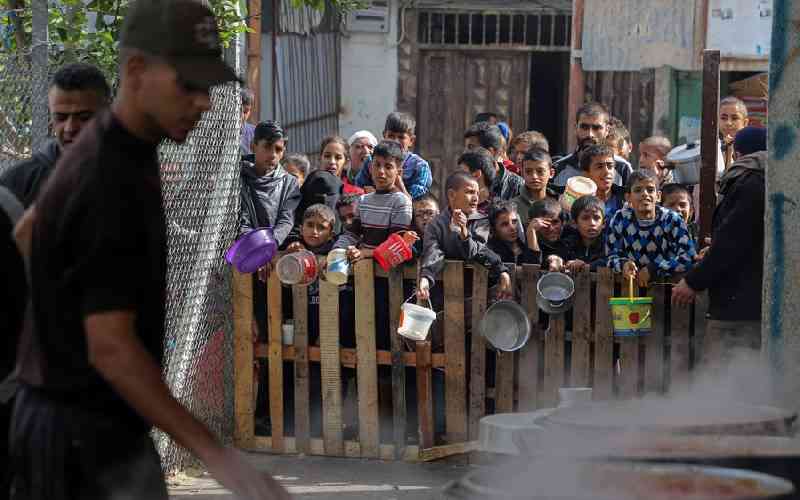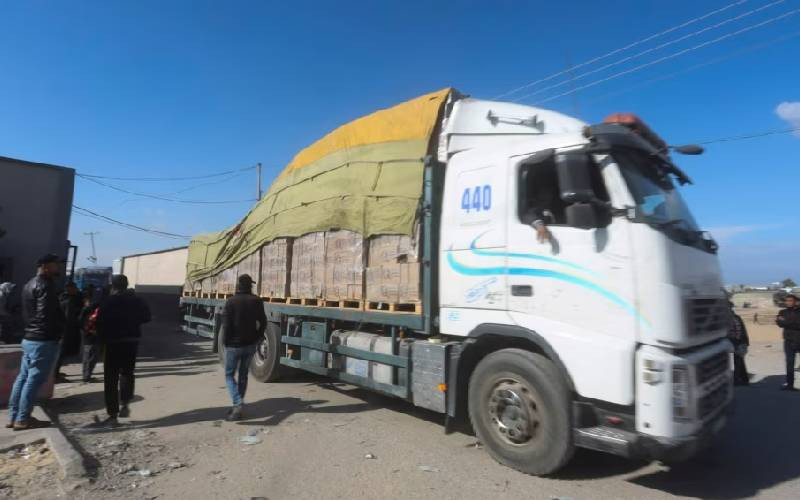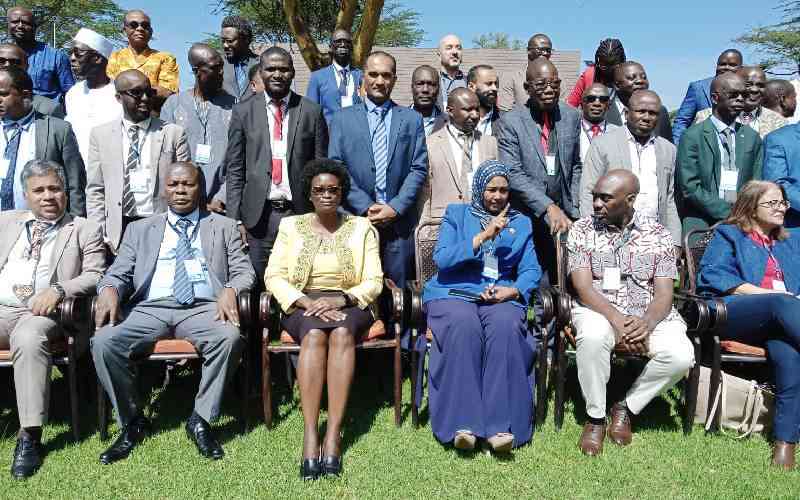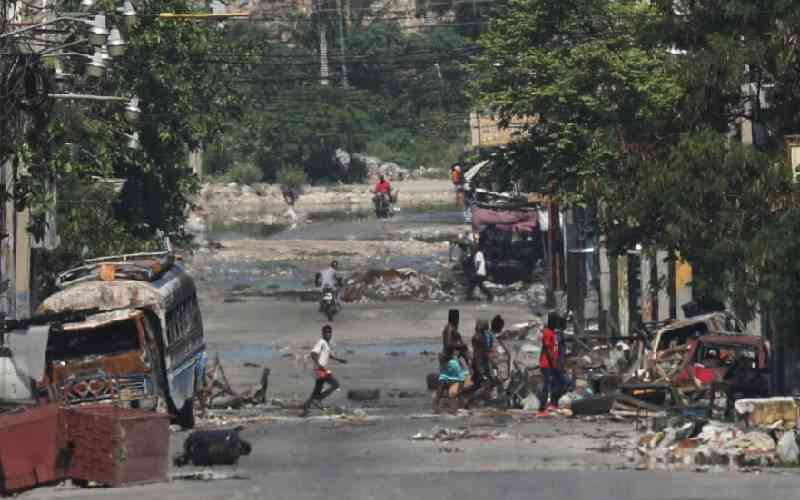By Juma Kwayera
Lost in the din of succession politics and the divisive issue of the trial of post-election violence suspects is a major national catastrophe that has been in the making for over two years now – famine.
Although relevant ministries are yet to compile up-to-date statistics of the number of people in need of help vis-‡-vis food available nationally, fear of an imminent catastrophe is creeping into Government. There is fear a third or more of the country’s 40 million-plus population will require relief food before end of the year.
Consumers, who must shoulder heavy food costs, say the country is paying the price of corruption in the Ministry of Agriculture. This has been made worse by freak weather patterns.
The Government finds itself in a bind over inaction against financial fiddling in key ministries, which has resulted in hundreds of people in arid and semi-arid regions in the north succumb to drought and devastating food shortage.
United States Agency for International Development (USAid) Famine Early Warning System (Fews) in its latest updates on the food situation in Kenya warns of severe shortages in arid and semi-arid regions, affected by the poor rains and access to the nomadic populations.
In the rest of the country – including the production belt of western Kenya – the price of maize has hit an all-time high.
Gloomy picture
The Secretary General of the Federation of Kenyan Consumers, Stephen Mutoro paints a gloomy picture of food security. He says consumers should be ready for the worst as prices soar and traders cash in to make a killing.
"The situation is man-made as it a strong connection to politics. Nobody seems to understand how we arrived here. What is not in doubt is the pattern of consumer prices going disproportionately high when elections are around the corner," says Mr Mutoro.
According to Fews: "Pastoral households are facing food deficits and are increasing using undesirable coping strategies, such as skipping meals, increasing indebtedness through the purchase of food on credit, sharing of relief food rations and withdrawing children from school as households migrate."
Mutoro says the hard truth about the disaster – in incubation since the political elite allegedly stole and sold millions of bags of maize under the strategic grain reserves, fertiliser and seeds meant for farmers – is now emerging.
"It is a pointer to the suspect intentions of a few individuals who have created an artificial scarcity for their own benefit. It is a situation that would have been avoided if the managers of the National Cereals and Produce Board (NCPB) kept updated records of the cereal stocks," he says.
The NCPB Managing Director, Gideon Misoi confirmed to The Standard On Saturday the food shortage is serious. However, he declined to provide an accurate account of the situation in the national silos.
"Twelve ministries are compiling the data that should be available on Monday at the earliest," said Dr Misoi.
Stay informed. Subscribe to our newsletter
A series of meetings of the National Drought Steering Committee under chairmanship of Prime Minister Raila Odinga was stunned by revelations that the 2.1 million bags of maize still in the Strategic Grain Reserves will run out by September.
Even then, the maize may not be fit for human consumption, which prompted the PM to direct the team to draft proposals to the Cabinet on the drought and food situation.
12 ministries
The committee comprising officials from 12 ministries: Agriculture, Livestock, Special Programs, Information, Internal Security, Water, Education, Health, Energy, Transport, Trade and Northern Kenya Development.
Although the Government has not come out to openly admit the scale of hunger is of catastrophic proportions, President Kibaki hinted to the seriousness of the problem during his Madaraka Day address. He announced the Government would import eight million bags of maize to offset the deficit.
The announcement came a day after the Head of State declared drought in northern Kenya a national disaster. Consequently, the Government has also zero-rated duty on maize and wheat to allow licensed firms and individuals to import.
The country requires over 32 million bags of maize per annum to meet its food demand, but the yield in the past two seasons have been poor leaving nearly two million people in dire need of food.
Fews reports: "While morbidity incidences have remained within seasonal norms, the nutrition status of children below five years of age is starting to worsen, likely due to reduced access to food."
The PM has instructed the Ministry of Agriculture to give the official position on the amount of maize in stores to enable relevant ministries involved in food provision plan.
The Meteorological Department forecast for the rest of the year point to depressed rains until the next long rains.
A report seen by The Standard On Saturday says during the rains received were "generally poor both in time and space" over most parts of the country with the arid and semi-arid lands being the hardest hit.
 The Standard Group Plc is a
multi-media organization with investments in media platforms spanning newspaper
print operations, television, radio broadcasting, digital and online services. The
Standard Group is recognized as a leading multi-media house in Kenya with a key
influence in matters of national and international interest.
The Standard Group Plc is a
multi-media organization with investments in media platforms spanning newspaper
print operations, television, radio broadcasting, digital and online services. The
Standard Group is recognized as a leading multi-media house in Kenya with a key
influence in matters of national and international interest.
 The Standard Group Plc is a
multi-media organization with investments in media platforms spanning newspaper
print operations, television, radio broadcasting, digital and online services. The
Standard Group is recognized as a leading multi-media house in Kenya with a key
influence in matters of national and international interest.
The Standard Group Plc is a
multi-media organization with investments in media platforms spanning newspaper
print operations, television, radio broadcasting, digital and online services. The
Standard Group is recognized as a leading multi-media house in Kenya with a key
influence in matters of national and international interest.









